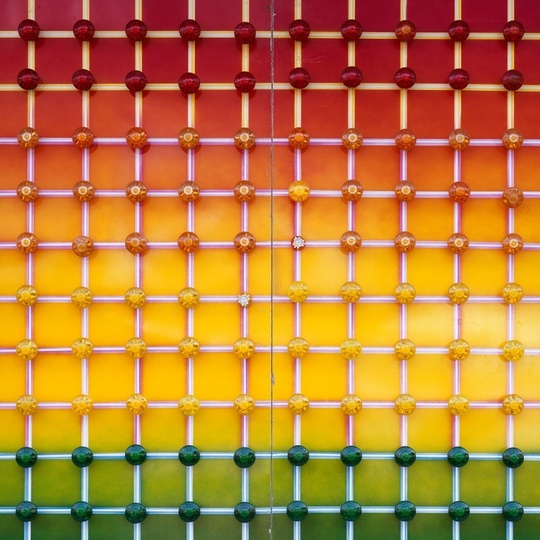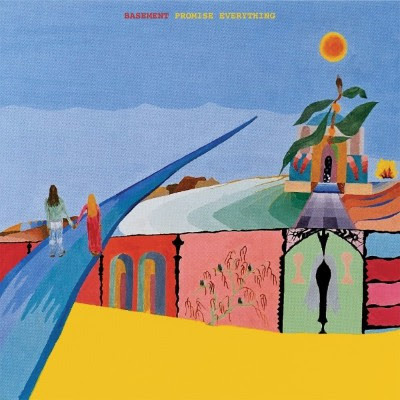Nonkeen have a charming background story, which traces friendships forged through rudimentary recording devices used to capture the incidental sounds of the playground. Nils Frahm and Frederic Gmeiner attended the same primary school in a rural suburb of Hamburg. The pair met East German schoolboy Sebastian Singwald – who happened to be sporting a tape recorder around his neck – in the summer of 1989. The three kept in touch and collectively worked on compositions that reworked children's folk songs, pop music, classical compositions and improvised pieces.
The tracks that make up The Gamble were the result of ten years of experimental sessions that Frahm recorded intermittently. The haphazard nature of the album’s gestation may be why the group decided on the record's title. In many senses the only one of them it could really be a gamble for is Frahm. In a relatively short space of time he has managed to place himself at the centre of the contemporary classical scene. His mix of solo piano works and electronic experiments have made a significant contribution to neoclassical music that has predominantly found its home at London’s Erased Tapes records.
The record is somehow at once both a departure from and in keeping with his previous output. All the familiar elements are in place: minimal piano lines and synthesised soundscapes. But this music is distinct in relation to Frahm’s other work. Where previously his use of minimal piano and mixed paces has rendered beautiful works of grace the ambience of The Gamble a very different beast.
Many of the record’s tracks echo the electronic jazz fusion that The Cinematic Orchestra have utilised to great effect. 'Ceramic People’ is an example of the trio hitting it just right: the skittish percussion and wandering synths swell into a multi layered mesmeric piece. And a similar experiment on the atmospherically anodyne ‘the beautiful mess’ proves the method has legs. But by the time you get to 'Capstan’ it’s like they’ve run out of gas, experimentation seems to take precedent over listening pleasure and the result is testing.
The other thread Nonkeen follow on this record is electro-space experimentations. The opener, ‘The Invention Mother’ is such a track and is full of majesty and wonder, and yet ‘pink flirt’ takes its minimalism to frustrating levels.
They also make forays into faster paced more conventional electronica, but more often than not these can become irksome. ‘animal farm’ begins with a promisingly compelling beat but never takes it anywhere interesting enough to be truly gratifying. It’s much like ‘Chasing God Through Palmyra’ - there’s never enough meat added to the bones of the alluring percussion for it to be a satisfying feast. And it brings to mind label mate Olafur Arnalds' infinitely more pleasurable side project, Kiasmos.
It may be unfair to compare this project to those of Frahm's contemporaries, and also in relation to his own solo work, but it’s nigh on impossible to isolate this record. This is mainly because Frahm, to his credit, has had such impact. With reference to his own music its difficult not to miss the emotional gravitas that underpins so many of his minimalist compositions and his innate sense of fun (check out ‘For Peter - Toilet Brushes - More).
Sadly, The Gamble seems to lack both of these elements. Nonkeen’s collective narrative may be charming, but more often than not the record fails to deliver on its many promise. Despite these shortcomings this is a collection worth investing some time in as it does contain some excellent moments. It’s likely that its patchiness is connected to its unconventional recording and therefore it never feels like a fully realised project. Rightly or wrongly when you have previously set the bar so high expectation is exponentially elevated and for the most part The Gamble doesn’t meet it.
-
6Bekki Bemrose 's Score






















